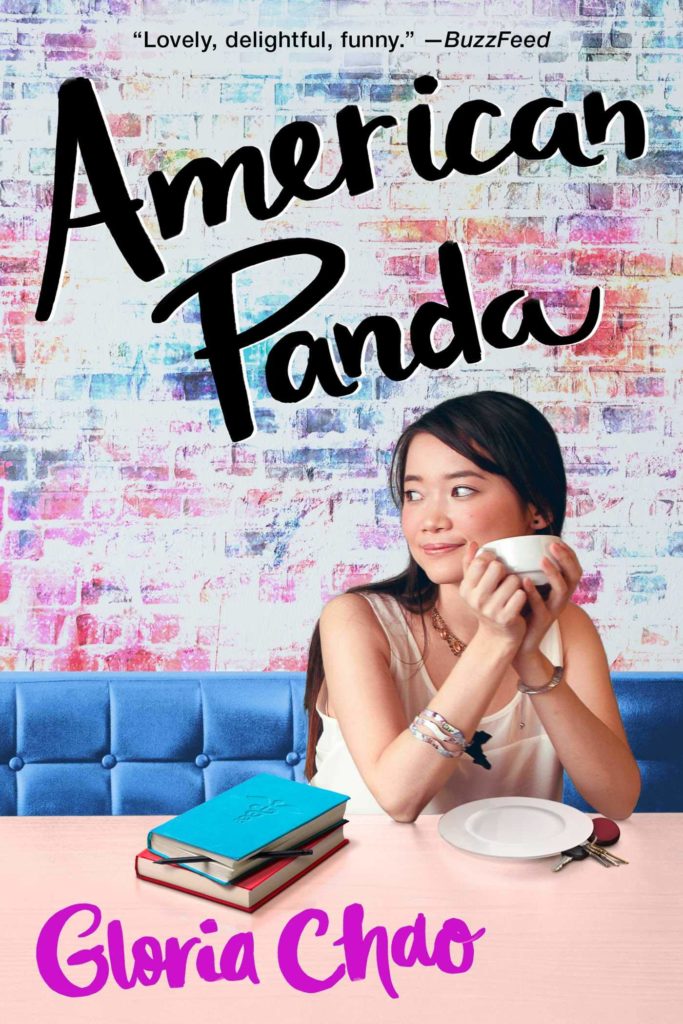Literary Bodies
About Us
Literature Bodies is a website that will have monthly book recommendations. I will discuss characters, development, and plot. It will mostly consist of romantic teen novels but I plan to also talk about mystery novels. My plan is to create a community and not only to express my opinions. I want to hear your suggestions. I hope you enjoy it.
Review
Peanuts are a Girl’s Best Friend
Have you ever felt pressured by your surroundings? Did you ever feel like people were deciding your future? Need to hide who you really are? Then I suggest you read American Panda by Gloria Chao. It’s a story about a 17-year-old girl called Mei Lu whose parents have planned out her future. However, she struggles with wanting that as her future. Her parents want her to become a doctor at MIT and to marry a Taiwanese boy but she has a fear of germs and has a massive crush on a Japanese American student.
When I first discovered this book, I was excited because this was a book recommendation from my high school librarian. I immediately fell in love and felt connected to the character. I personally struggle with mental health issues that are intertwined with the pressure I received as a child. I felt heard and understood what Mei is going through.
Although, when you first start reading you feel slightly irritated by Mei because she has not yet stepped out from her shadows and still does what her parents tell her. What makes her irritating is that she believes it is the right choice to do exactly what your parents want. It makes me sad because she is not living her life and is staying far away from adventure. However, that all changes as she becomes closer with her roommate and crush.
It is understandable why she follows the rules because she believes that is the right decision but the truth is you know what is best for you, no one else. Chao conveys a very important message through her novel, which is that you have to fight for what you want and through the struggles, you discover who you are and what you want.
Interviews with The College of New Jersey English Professors
I questioned a few English professors, who are part of the English Department and have worked for over 10 years at the college. I interviewed Professor Diane Steinberg, who teaches Linguistics, Approaches to Literature, and older British Literature especially Jane Austen, British Romanticism, British Literature Survey. She also teaches a Seminar sometimes and the winter course that is the British Theater course. Further, I interviewed Dr. Jean Graham, who has been teaching at the TCNJ English Department since 1994 and has taught and continues to teach First-Year and Graduate Students. Specifically, she teaches British Literature at the upper level and Dystopian Literature. Outside the English Department, she teaches sometimes the Academic Writing course and First-Year Seminars. Lastly, I interviewed Professor Jo Carney, who’s main area of scholarship is Early Modern Literature and Shakespeare but she is also interested in Contemporary Literature and thus teaches 20th and 21st Century Literature. Additionally, she teaches many grade courses and one of her side interests is Fairtale and Folktale and taught many courses that focus on. She also looks at literary adaptations and has a course that focuses on contemporary authors talking back and responding to the norm and revising earlier works.
- Do you think social media is taking away the opportunity for kids to discover good books?
- Professor Steinberg: “Probably depends a lot on the student. I mean I don’t agree, but obviously, I teach English majors, I know a great many young people who enjoy readings and they have authors and characters that they like, reading is something that is fun for them. You know I’d say it depends, I don’t think that there is ever a Golden Age in American society in which people were all serious readers, that age never existed. So to blame social media for the fact that all children are not serious readers seems silly”
- Do you think literature is still important for today’s generation?
- Dr. Graham: “I think as many people said before that literature develops empathy, which everyone needs. Everyone needs to get out of their own life and think about how other people might think and feel and I know literature was a big influence on my life that way and I think that is still something everybody needs. It also develops imagination so I think if you are going to solve problems, you need to use your imagination sometimes.”
- What techniques do you use to inspire students to reason? What has worked and did something not work?
- Professor Carney: “I think it’s really important to match the book with the reader. A book that may speak to you and may be near and dear to you, may do nothing for the next person and that is perfectly okay. It’s like music, food, art, you know we all have our tastes so even with my 8-year-old granddaughter, I have found that it is really important that she finds the right book. I go to the library and check out tons and tons of things for her because I can’t take her right now as I used to and she comes over and I have 20 books for her to browse through and really pick the one that she is interested in. I think the same thing applies to older people so if there is somebody that is just not an avid reader and they want suggestions or I want to try to encourage them, I say let’s start with what you are interested in. What kinds of things have you read? What’s a book that you have read that you like? and what did you like about it? Do you like things that are more plot-driven? Do you like a certain genre? There is actually something that the New York Times has, it is probably online as well, called matchmaker or something like that. It is that kind of thing where you can write in and say this is what I kinda like, you know what would you recommend? It’s like a really good person to the bookstore, you go into and say I’m looking for something with such and such but I think the next thing then is to kinda introduce the book and get people familiar with it, so you are not just like here go read it, bye. Talk a little about the author, get jazzed up about it, maybe read a couple of reviews about it. I guess it depends on whether I recommending books for a family member, friend, or student. A student has to read the book, so let’s talk about it, let’s break it down. I think you need to meet people at their own level. Some people are very independent readers, some will just go off and get it, others need a little encouragement to help them to have the tools to dig in. I think another technique is enthusiasm and I think don’t go assign 300 pages if you think that students might have a reaction. Start with a little bit and dig in or ask students to bring in one line that they liked, which I use in my Shakespeare classes. Let the person own it, find one paragraph that stood out for you, or focus on one character. Don’t expect everybody to just embrace it all at once, some people will but if people won’t, it’s overwhelming. So I think you should break it down”
Social Media Handles and Recommendation
Social Media Handles
Instagram: @sosgrets
Twitter: @sosgrets
Send me book recommendations and any suggestion you have about the website to one of my social medias. Also send me your opinions about the book that I discussed because I am keen to find out what you guys think



